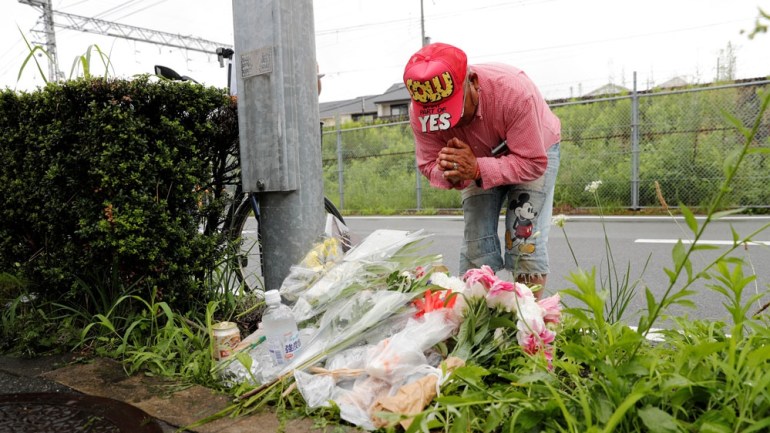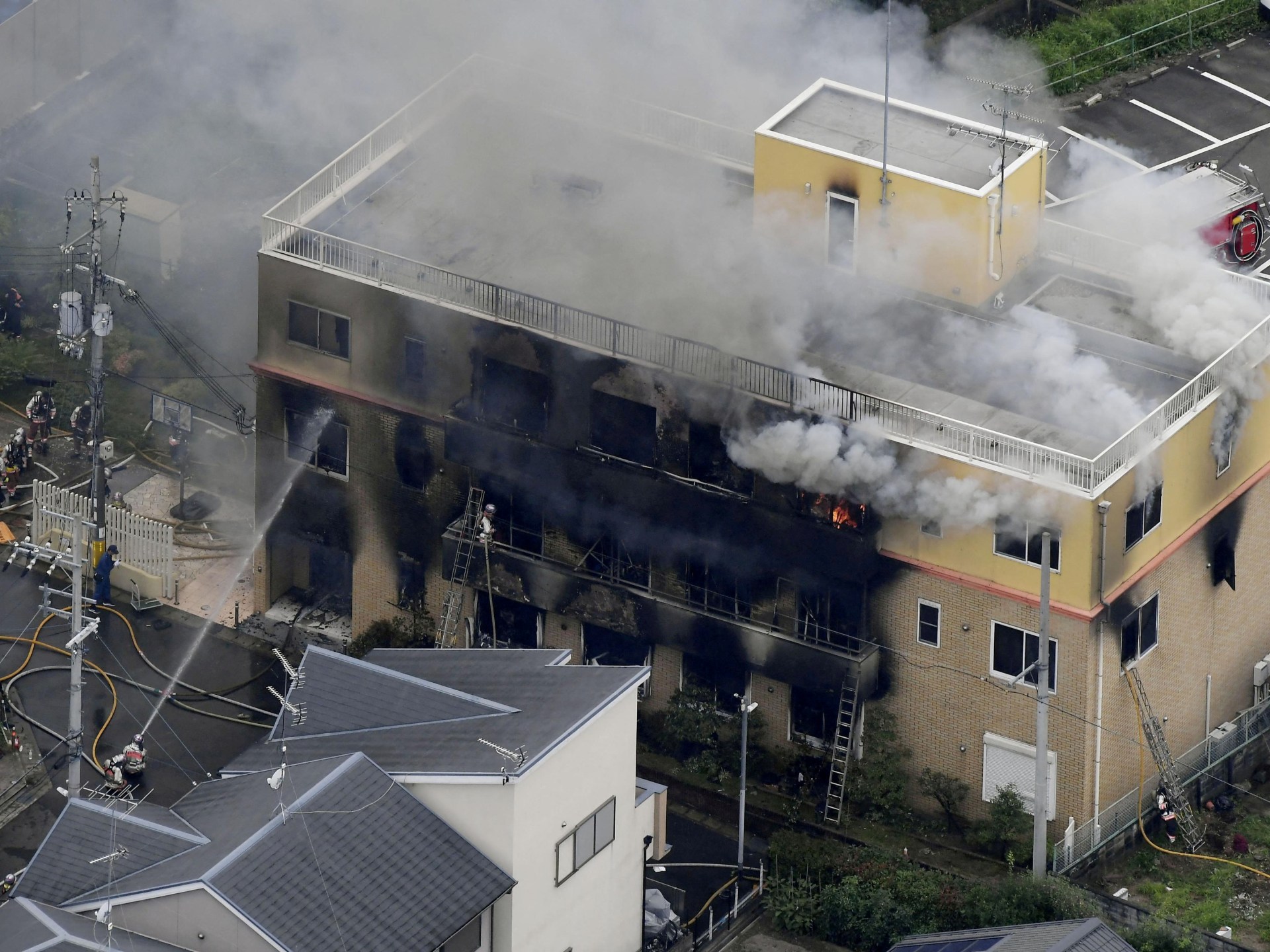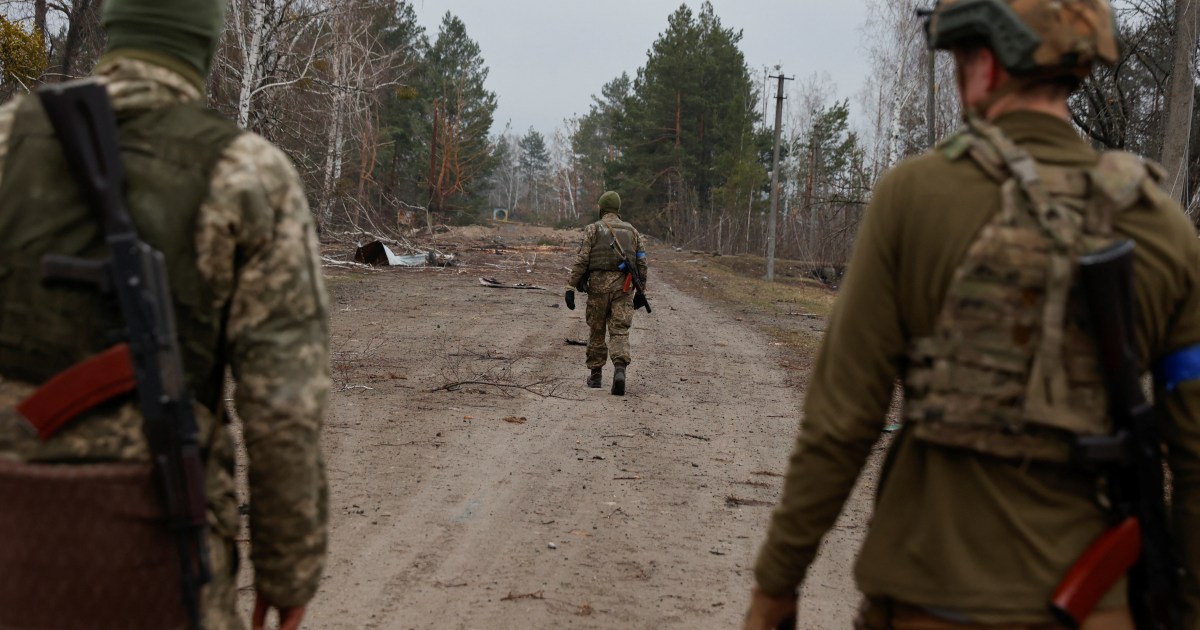Japan sentences man to death for Kyoto anime studio fire that killed 36 | Crime News
Judge says attack on renowned Kyoto Animation by Shinji Aoba, 45, ‘instantly turned the studio into hell’.
A court in Japan has sentenced a man to death after he was convicted of murdering 36 people in an arson attack on a Kyoto animation studio in 2019.
The Kyoto District Court on Thursday said it found Shinji Aoba, 45, mentally capable of facing punishment for murder, arson and other crimes in the attack on Kyoto Animation’s Studio 1 on July 18 that year which shocked Japan and drew an outpouring of grief from anime fans worldwide.
Prosecutors said Aoba had been motivated by a grudge against the studio, which he claimed had stolen his ideas after rejecting his novels in an annual contest. The court found no evidence the studio had plagiarised his work.
NHK national TV, quoted Judge Keisuke Masuda, as saying: “The attack that instantly turned the studio into hell and took the precious lives of 36 people, caused them indescribable pain.”
Survivors reported that on the morning of the attack, Aoba had broken into the building, spreading petrol on the ground floor and lighting it while shouting “drop dead”.
Reeling
The anime industry was left reeling by the crime, which killed young artists working in the three-storey building.
About 70 people had been working on the premises at the time. Many of the victims were believed to have died of carbon monoxide poisoning. More than 30 other people were badly injured.
One of the survivors said he saw a black cloud rising from downstairs, then he felt scorching heat and jumped from a window, gasping for air.
A number of victims were found on a spiral stairwell leading to the roof, suggesting they were overcome as they desperately tried to escape.
Mentally fit
The arsonist appeared in court in a wheelchair. He had himself been left severely burned after his attack and spent 10 months in hospital before his arrest in May 2020.

His lawyers argued he was mentally unfit to be held criminally responsible, unable to distinguish between good and bad.
However, the judge ruled that Aoba was “neither insane nor suffering diminished mental capacity at the time of the crime”, NHK reported.
“I didn’t think so many people would die, and now I think I went too far,” Aoba told the court when the trial opened in September, reports said at the time.
Studio ‘spread joy’
The fire was Japan’s deadliest since 2001, when a blaze in Tokyo’s congested Kabukicho entertainment district killed 44 people.
Firefighters called the incident “unprecedented” and said rescuing people trapped inside was “extremely difficult”.
After the attack, there was an outpouring of shock and grief around the world, with Apple CEO Tim Cook tweeting that the studio’s artists “spread joy all over the world and across generations with their masterpieces”.
A US animation company raised $2.4m via crowdfunding to help the firm get back on its feet.
Known as KyoAni, the studio was founded in 1981 by a couple. It is known for popular TV series, including The Melancholy of Haruhi Suzumiya and K-ON!.

For families of the deceased, the pain of their loss remains excruciating to this day.
“I should have told her not to go to work that morning,” the mother of 49-year-old Naomi Ishida told the Mainichi Shimbun daily this week.
“Even if he gets the death penalty, Naomi and others won’t come back. I feel empty,” she said.
Criticism
Polls show public support is high for capital punishment, which has been criticised by rights groups.
Japan is one of the few developed countries meting out the punishment, typically in murder cases with more than one victim.
Inmates are often informed of their execution on the morning of the day they are to be hanged.
The highest-profile executions in recent years were in 2018, when Japan hanged 13 people – including the guru of a doomsday cult – responsible for the 1995 sarin attacks on Tokyo’s underground railway.
The last execution was in 2022 and, as of December, 107 people were on death row.




